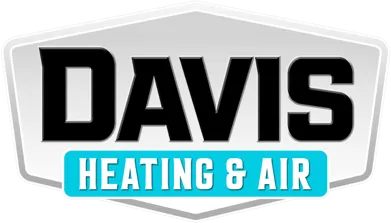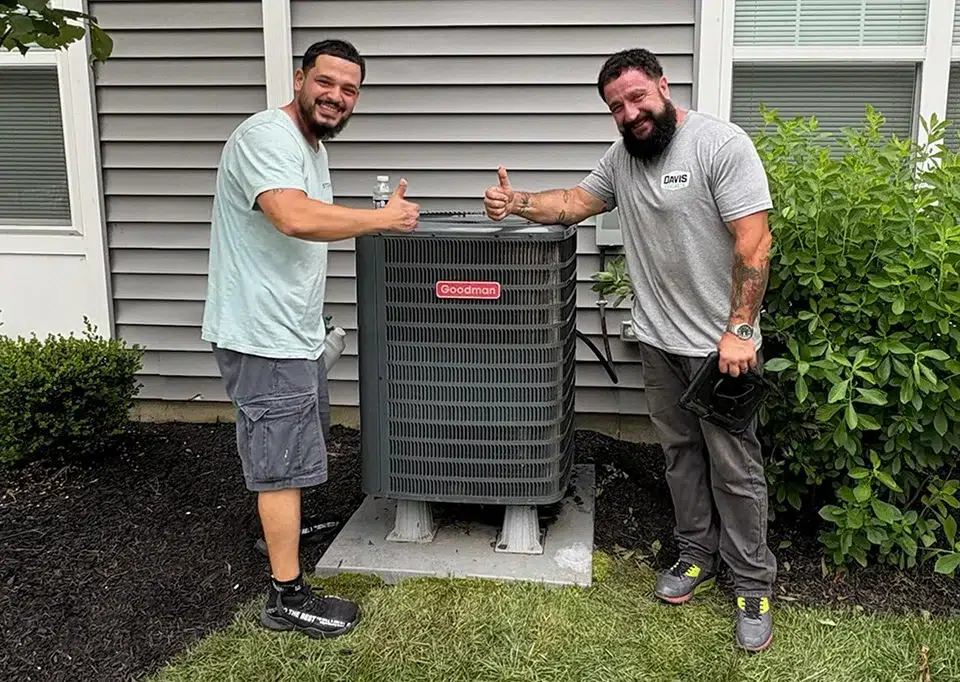What Happens When Humidity Is Too High Indoors?
High indoor humidity doesn’t just feel uncomfortable — it creates conditions that stress your HVAC system and reduce its ability to cool effectively.
Here are some common signs of high humidity in the home:
- Sticky or clammy air: Even at moderate temperatures, high moisture levels can make your home feel much warmer.
- Condensation: Fogged-up windows, damp walls, or moisture on vents are all warning signs that you have too much moisture in the air.
- Musty odors: Persistent smells can indicate excess humidity and possible mold growth.
These conditions force your air conditioner to work harder and longer, which can lead to higher energy bills and increased wear on system components.
How Humidity Impacts Your HVAC System’s Performance
The impact of humidity on HVAC systems goes beyond simple discomfort. Moisture in the air changes how your system functions — and not in a good way.
Here’s how excess humidity creates HVAC humidity issues:
- Reduced cooling efficiency: Your AC is designed to remove some moisture, but if the humidity is too high, it struggles to keep up.
- Longer run times: The system may stay on continuously, trying (and failing) to reach the set temperature.
- Component stress: Moisture can damage parts like blower motors and evaporator coils, leading to more frequent repairs.
- Short-cycling: Frequent on-off cycles can occur when the system can’t manage the moisture load effectively.
- Mold risk: High humidity inside your ductwork can contribute to mold growth, which affects both comfort and indoor air quality.
If you notice your system constantly running or cooling unevenly, it may be time to schedule an AC repair or evaluate your home’s humidity levels.
Ideal Indoor Humidity Levels for Comfort and Efficiency
Maintaining the right indoor humidity helps your HVAC system operate efficiently and keeps your living space comfortable year-round. The ideal range is between 30% and 50%.
When indoor air exceeds that level, even the best cooling systems struggle to perform. High humidity makes the air feel warmer than it is, which often leads to turning the thermostat lower than necessary — increasing both your energy use and costs.
While your AC removes some moisture as it cools, it wasn’t designed to be the primary tool for HVAC humidity control. In homes with persistent issues, added support may be necessary.
Solutions To Manage Humidity in Your Home
There are several effective strategies for homeowners who need to know how to reduce humidity indoors. Here are the most impactful:
- Use a dehumidifier for HVAC system support: Whole-home dehumidifiers are integrated with your HVAC system to regulate moisture levels in every room.
- Schedule regular maintenance: Routine AC maintenance helps your system operate at peak performance and catch issues early.
- Upgrade to a newer system: Modern air conditioners are often better equipped to handle humidity. If your system is aging, AC replacement might be the best long-term solution.
- Explore IAQ services: Davis Heating & Air offers indoor air quality consultations that can assess humidity levels and recommend the right solutions for your home.
Whether you’re dealing with uncomfortable air, high energy bills, or recurring AC issues, tackling humidity head-on will improve both your system’s performance and your daily comfort.
How Davis Heating & Air Can Help
At Davis Heating & Air, we understand HVAC humidity issues are a common struggle for homeowners in Cherry Hill, Mount Laurel, Burlington, and throughout South Jersey. Our team specializes in identifying and solving these problems with smart, effective solutions.
From upgrades like whole-home dehumidifiers for your HVAC system to IAQ evaluations, we offer expert support tailored to South Jersey’s climate. We also provide honest recommendations, prompt service, and easy scheduling — all made even easier when you join the Davis Comfort Elite program.
Don’t let summer humidity take over your home. If you notice signs of high humidity indoors, Davis Heating & Air can help. Contact us today for expert recommendations and fast solutions that restore comfort and control.
Frequently Asked Questions About Humidity and HVAC Performance
What is the ideal humidity level for my home?
The recommended indoor humidity level is 30–50%. Staying within this range helps your HVAC system run efficiently and keeps your home comfortable year-round.
Can high humidity damage my HVAC system?
Yes, high humidity can damage your HVAC system. Over time, high humidity can cause corrosion, mold buildup in ductwork, and stress on your system’s mechanical components. These HVAC humidity issues can shorten your system’s lifespan and lead to costly repairs.
Why does my AC run constantly when it’s humid?
Your AC works to both lower the temperature and remove excess moisture from the air. On humid days, it may run continuously to try to manage both, especially if your home lacks proper HVAC humidity control.
How can I reduce humidity in my home?
There are several ways to manage excessive moisture levels in your home. Some of our most common recommendations are installing a whole-home dehumidifier for your HVAC system, sealing windows and doors, using exhaust fans, and scheduling regular HVAC maintenance.


